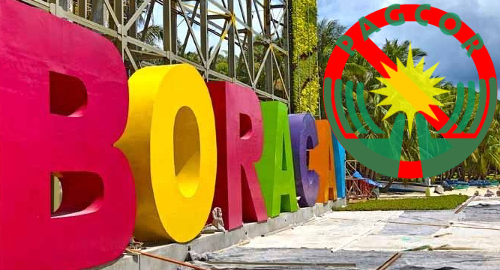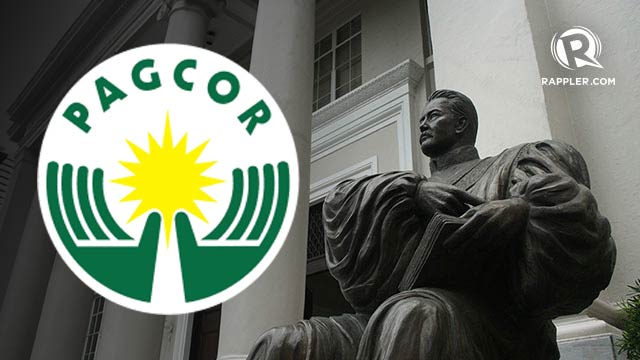Pagcor Casino License #
Flush PAGCOR Reverses Commitment To Privatising Self-Run Casinos 21st Mar 2019 Written by: Martin John Williams in Manila The president of Philippine gaming regulator PAGCOR has ruled out privatising the agency’s casino gaming operations, sealing a divided administration’s about-face on. Appeals court orders PAGCOR to issue casino license. Sharon Singleton - December 3, 2018. Domingo and PAGCOR President and Chief Operating Officer Alfredo C. Lim were asked to comment but had yet to respond at deadline time. In a phone message to BusinessWorld, PAGCOR Corporate Communications Assistant Vice- President Carmelita Valdez said: “We are waiting for update from the chairman.”.
The court noted that Waterfront seeks a license “similar to those granted to Resorts World Manila, City of Dreams, Solaire Resort and Casino, and Okada Manila.” Waterfront operates several hotel-casino properties in the Philippines, the gaming operations of which utilize PAGCOR’s own Casino Filipino brand.
It’s been 12 years since Waterfront Philippines Inc. first sought a gaming license to launch an integrated resort (IR) to Entertainment City in the Philippines. Philippine Amusement and Gaming Corporation (PAGCOR), the country’s gaming regulator, as well as an operator of several casinos, didn’t believe Waterfront had met its requirements and tried to block the license request. After seeing the dispute between the two entities bounce back and forth in court for years, it finally made its way to the Supreme Court, which has issued its final verdict. PAGCOR needs to get out of the way.
In 2017, PAGCOR was denied from blocking the license in court. It wasn’t happy with the ruling and appealed, only to lose in December of the following year. Undeterred, PAGCOR tried again. However, the Philippines Court of Appeals denied the attempt, backing its December ruling. The gambling operator still wasn’t ready to accept defeat and took its case to the Supreme Court. The high court issued its ruling last February and, once again, PAGCOR fought the decision, arguing that the court had made a mistake in its judgment. The Supreme Court dropped the gavel one more time last mon th, asserting that its decision was “final and executory by being recorded in the Book of Entries and Judgements.”
That essentially means that PAGCOR now has no recourse if it wants to try to deny the license to Waterfront again. While it continued to drag its feet with the company, which had made a $100-million deposit on the license, PAGCOR was able to issue licenses to four other properties in the country – City of Dreams, Okada Manila, Resorts World Manila (RWM) and Solaire Resort and Casino. Of those, only RWM is not located in Entertainment City and another property, Westside City Resorts World, will open there before Waterfront would be able to launch.
PAGCOR had previously been ordered to pay Waterfront for damages over the dispute, but only about $4,000 – nowhere close to what it has had to lay out in legal fees and expenses tied to the license fee deposit it gave. The prolonged inability to proceed, coupled with the weakened economy caused by COVID-19, might force the company to temporarily reconsider its options, but it still expects to take advantage of its victory at some point. The company said in a statement last week that the decision and the subsequent license issuance “will have a favorable effect on WPI’s business or operations once the pandemic is over.”
Waterfront has had to deal with money issues for the past several years. In addition to the problems it has had with PAGCOR, it had defaulted on a loan in 2003 that led to a $16-million judgment against the casino operator. That judgment was reversed by a judge a few years ago, but was reinstated last year, putting the company on the hook for the total amount at a time that land-based casino operations were starting to see trouble coming because of COVID-19.

Update: Bloomberg reported on November 3 that PAGCOR will allow integrated resorts in the capital Manila to accept bets online. Alfredo Lim, the corporation’s president, confirmed via text message the approval of applications from City of Dreams Manila, Okada Manila, Resorts World Manila, and Solaire Resort and Casino to begin taking online wagers.
Gambling body weighs proposals
The Philippine Amusement and Gaming Corporation (PAGCOR) is considering proposals to permit land-based casinos to start offering online gambling. This comes as the country’s government and casino businesses look for ways to make up for financial losses due to COVID-19.
government and casino businesses look for ways to make up for financial losses
PAGCOR confirmed in an email to Asia Gaming Brief that: “During the lockdowns this year, proposals from operators of land-based properties to accept bets online from known patrons only were received by PAGCOR.”
Pagcor Casino License Requirements
The requests put forward are now under consideration by the regulator’s relevant departments. No further details have been provided as yet.
A changing landscape
The allowance of online gambling within the Philippines is looking positive following the recent consideration of licensed online cockfighting (known locally as “sabong”) betting. PAGCOR CEO Andrea Domingo has stated: “PAGCOR can issue the proper regulations in order to license and legitimize operations of local online sabong.”
Pagcor Casino License
A potential obstacle to progress is Philippines President Rodrigo Duterte. Set to leave office in June 2022, he has historically been hesitant towards gambling expansion in the country. Filipino politician Hon. Gus Tambunting commented last year that the president would not allow online gambling while he was still in power.

While there are online gambling operators currently in the Philippines, they are only able to target customers outside of the country.
The aftermath of pandemic closures
Gambling operators in the Philippines have been struggling during the pandemic, which is why they are looking for any possible revenue boost.
casinos are still struggling because of lower capacity and little international tourism
Land-based casinos had to close in March as the government attempted to curb the spread of COVID-19. The facilities stayed shut until the end of August, when casinos in certain areas were able to resume business at 30% capacity and with extensive restrictions in place. Despite these reopenings, the casinos are still struggling because of lower capacity and little international tourism.
PAGCOR also closed Philippine Offshore Gaming Operators (POGOs) for a time as a result of the pandemic, leading to significantly lower revenues for the country’s gambling regulator. PAGCOR’s monthly earnings from online operators have fallen by about 80% as regulatory fees for POGOs almost halved. About 50% of PAGCOR’s income goes towards funding public programs in the country.